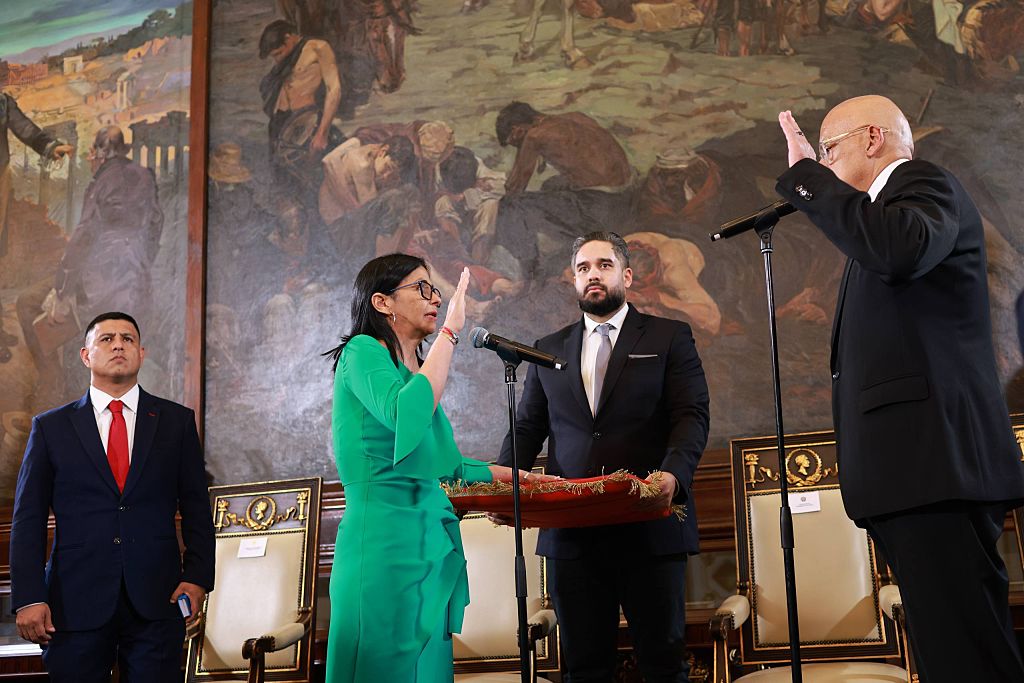FARC's Dwindling Days?
FARC's Dwindling Days?
After more than four decades of civil strife in Colombia, the death of the FARC’s founder and commander Manuel Marulanda's serves as the latest setback for an already weakened rebel group.
The Revolutionary Armed Forces of Colombia (FARC) commemorated its forty-fourth anniversary this weekend by confirming what Colombia’s government had already announced: that their leader and founder was dead. Pedro Marin—better known as Manuel Marulanda or “Tirofijo” (Sureshot)—died two months ago of a heart attack. On May 24, Colombian military intelligence intercepted a radio communication between guerrilla commanders, prompting a press conference announcing the rebel leader’s death followed by the FARC’s public acknowledgement.
The news of Marulanda’s death served as a sharp blow to an already weakened FARC during a year in which members of its senior leadership deserted or were arrested or killed. In the first quarter of 2008, the Colombian ministry of defense reports that 1000 FARC guerrillas deserted, 926 were captured, and 596 killed. To further weaken the group, President Álvaro Uribe proposed a new program with $100 million in funds to reward guerrillas that lay down their arms and turn over hostages. Other offers include parole and possible exile to France. Uribe indicated that the government had already received calls from guerrillas in response, including from the captors of ailing politician Ingrid Betancourt.
With desertions on the rise and the rebel group’s founder dead, questions mount about Marulanda’s successor and the group’s possible fragmentation caused by a power struggle between Guillermo Leon Saenz aka Alfonso Cano—selected to serve as FARC’s new top political leader—and the group’s top military commander Jorge Briceño (known as Mono Jojoy). Semana magazine examines challenges facing Cano, taking into account the March deaths of Marulanda, the FARC’s second in command Raul Reyes during a Colombian raid in Ecuador, and secretariat member Iván Ríos’ assassination by his own bodyguard.
Additionally, senior commander Nelly Avila Moreno (alias “Karina”) recently surrendered. “I don't know what the state of the FARC is on a national level, but we are fractured,” she told reporters, saying she had been cut off from her unit for months and from the secretariat for two years, reports the Christian Science Monitor. BBC examines FARC’s desertions and internal divisions as signs that the group may be close to their breaking point.
In recent interviews for Caracol Radio, kidnapped victims’ families and analysts voiced optimism about prompt hostage releases because new leader Cano has shown a conciliatory approach over the years.
Marulanda’s death came to light a week after Interpol certified that the data found on Reyes’ laptops, recovered by the Colombian army at the March 1 raid in Ecuador’s soil, were not manipulated by the government. The forensic report backed up the authenticity of several emails from Reyes to Ecuadorian and Venezuelan officials. Read more of AS/COA’s coverage of the Andean standoff, which started with the March 1 military raid in Ecuador.
COA hosted Colombian Minister of Defense Juan Manuel Santos at the 38th annual Washington Conference on the Americas, where he outlined competing ideologies in Latin America and their challenge for U.S. foreign policy in the region.








